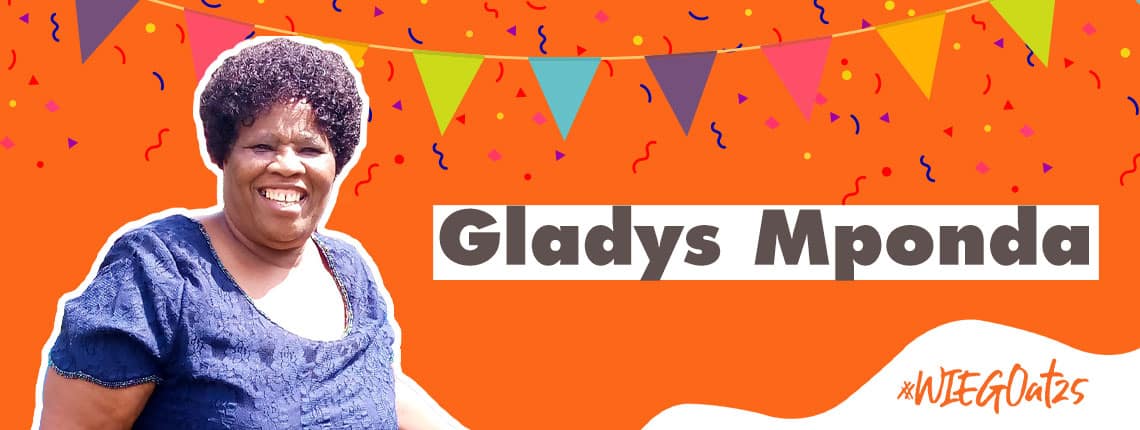In this interview, Gladys Mponda, Vice President of the Malawi Union for the Informal Sector (MUFIS), talks about the value of organizing, the importance of R204 and the strength of women.
From all the trainings and conferences I’ve been to, what has had the biggest impact on me is the organizing [of workers in informal employment into membership-based organizations]. Seeing how our friends were organizing in some countries really interested me, how they interacted with their governments. I was also moved by their work, what they have done.
Our organization [MUFIS] was established in 2001 and registered as a union in 2004. We saw that people did not have a voice and, with this need, we started organizing in markets. Those who understood quickly were women, and we had more women than men joining.
Over the next 25 years, I'd like to see more people organized – let’s say a million workers organized into our organization. We are a union – WIEGO helped us to register the union. We are so proud.
We see in the research that 89 per cent [of Malawi’s 5.5 million workers] are informal. So we can still organize in our sector and grow our organization.
For an organization to move, it needs women. Women move everything. In our organization…most of the leadership in the branches are women. Women are so strong, when they want something to be done they are so strong.
One of our proudest moments was when we were able to sign a memorandum of understanding with the Mzuzu City Council. Our union has grown since then – we have organized members from the southern region to the northern region. We were not known; now we are trying to lobby with the government to work with us.
We want to see R204 [the ILO Recommendation concerning the transition from the informal to the formal economy] being implemented. It hasn't been implemented in our country, but if we still push, I think it will be. Because we also pay tax, paying levies every day…and this the government is shying away from.
Once it [R204] is accepted, we could then employ others. People would have jobs because our businesses would be bigger. They say [an election promise by Malawi’s President Lazarus Chakwera] a million jobs for young people – we can create jobs for the young people.
WIEGO has helped us in research, in organizing, and in making it possible for us to attend conferences. I'm proud to say I'm among those WIEGO has trained – in social protection, urban policies, collective bargaining. And I am really proud that we have achieved something and are now also training others.
We want more training on gender-based violence. Our members, they are working in the markets, mostly women. They wake up early in the morning and go to the market to order goods to sell. When they come back late in the evening, their husbands beat them – “Why were they late” and taking all the money they have been saving and using it for drinking and other women. It is so bad that if the women wanted to go and buy some more goods to sell, she can't, because she has been harassed, has been violated by the husband. We need to educate people on that. Since in our trainings, there are men and women, we can bring it on board.
And there are some places in the markets where women are not allowed to put their goods on the benches. We would like to see change, that women’s businesses grow, from putting their wares down to having a stall where they can be selling and doing their business. By doing so, we will have a record that people are learning and they are practicing what they are learning.
- This has been edited for length and clarity. As part of our 25th anniversary celebrations, we are profiling WIEGO’s institutional members – trade unions, cooperatives and associations of informal workers that are active in WIEGO.
